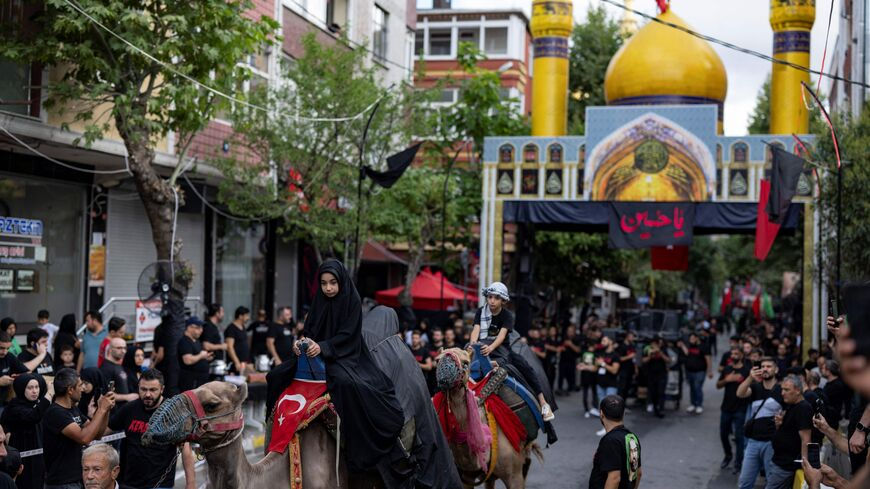Iran's Shiite Muslims Commemorate Ashoura with Processions Amid Regional Tensions
- Aaliyah
- Jul 17, 2024
- 2 min read
TEHRAN, Iran — Shiite Muslims in Iran and across the globe gathered on Tuesday to commemorate Ashoura, a significant religious observance marking the martyrdom of Hussein, the grandson of the Prophet Muhammad. This event, which took place over 1,340 years ago, remains a central element of Shiite identity and faith.
A Day of Mourning and Devotion
On Ashoura, cities throughout Iran, including the capital Tehran, were transformed into scenes of profound mourning and devotion. Streets were adorned with red flags symbolizing the blood of Hussein, while black tents and clothing underscored the somber nature of the day. In traditional processions, participants engaged in chest-beating and self-flagellation as expressions of their grief and reverence. Some mourners were sprayed with water to alleviate the heat of the day, highlighting the intensity of their observance.

The significance of Ashoura extends beyond Iran's borders. In a remarkable display of pilgrimage, Iranian state TV reported that around 6 million pilgrims traveled to Karbala, Iraq, to visit the shrine of Hussein. The shrine, adorned with a gold dome, is a focal point for Shiite worship and remembrance.
Regional Tensions and Tragedies
Amid the commemoration of Ashoura, regional tensions were underscored by a tragic event in Muscat, the capital of Oman. On Monday night, a shooting at a Shiite mosque resulted in five deaths and numerous injuries. The attack, which occurred just before Ashoura, was widely condemned by the Iranian Foreign Ministry, reflecting the broader concerns about sectarian violence affecting Shiite communities.
Shiite-Sunni Divides
The Ashoura observance highlights the ongoing sectarian divides within Islam. Shiite Muslims represent over 10% of the global Muslim population, estimated at 1.8 billion. For Shiites, Hussein is seen as the rightful successor to the Prophet Muhammad, and his death at Karbala has become a symbol of resistance and martyrdom. This historical event has profoundly influenced Shiite identity and contributed to the enduring sectarian rift between Shiite and Sunni Muslims.
In Pakistan, where Shiites are a minority in a predominantly Sunni Muslim country, Ashoura observances were marked by large rallies in major cities. Participants were seen engaging in chest-beating and using knives attached to chains for self-flagellation. In response to potential threats, authorities increased police presence along the routes of the processions to ensure security. Shiite communities in Pakistan have faced violence from extremist Sunni militants in recent years, adding a layer of danger to their religious observances.
Impact and Reflection
The events of Ashoura serve as a powerful reminder of the deep-rooted religious and sectarian divides that continue to shape the Muslim world. While the day is a moment of profound mourning and reflection for Shiite Muslims, it also underscores the broader issues of sectarian violence and conflict that affect the region.
This article has been updated to correct the day of the shooting in Oman. Additional contributions were made by Associated Press writer Munir Ahmed in Islamabad. As Ashoura concludes, the focus remains on ensuring safety and understanding in a region marked by both deep faith and complex tensions.



Comments